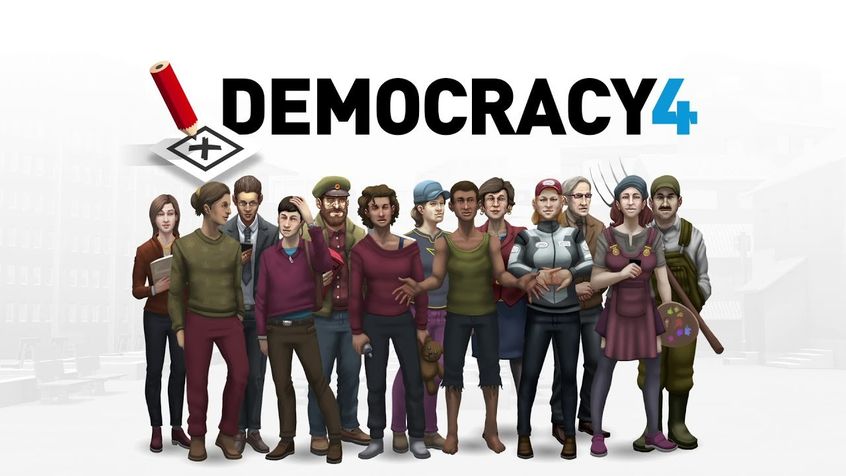Democracy 4
Churchill once said “democracy is the worst form of Government except for all those other forms that have been tried from time to time.” I’d like to challenge him on that. See, democracy requires that the people make their voices heard, and that the government elected by said people feels beholden to listen to them. And you know what? I believe the government feels no such obligation. Equally, I don’t believe the average voter has either the time or energy to truly be informed as to what their vote actually means and what the issues actually entail to be able to actually vote using anything other than vibes. All of that assumes, of course, that politicians act based on the will of the people who elect them, which, again, I don’t happen to believe that they do. A political system has the same goal as a body - self preservation and self-perpetuation, with change only really being induced through cataclysm.
i ran for office once, and oh lord, i am prepared for all of this to be taken well out of context
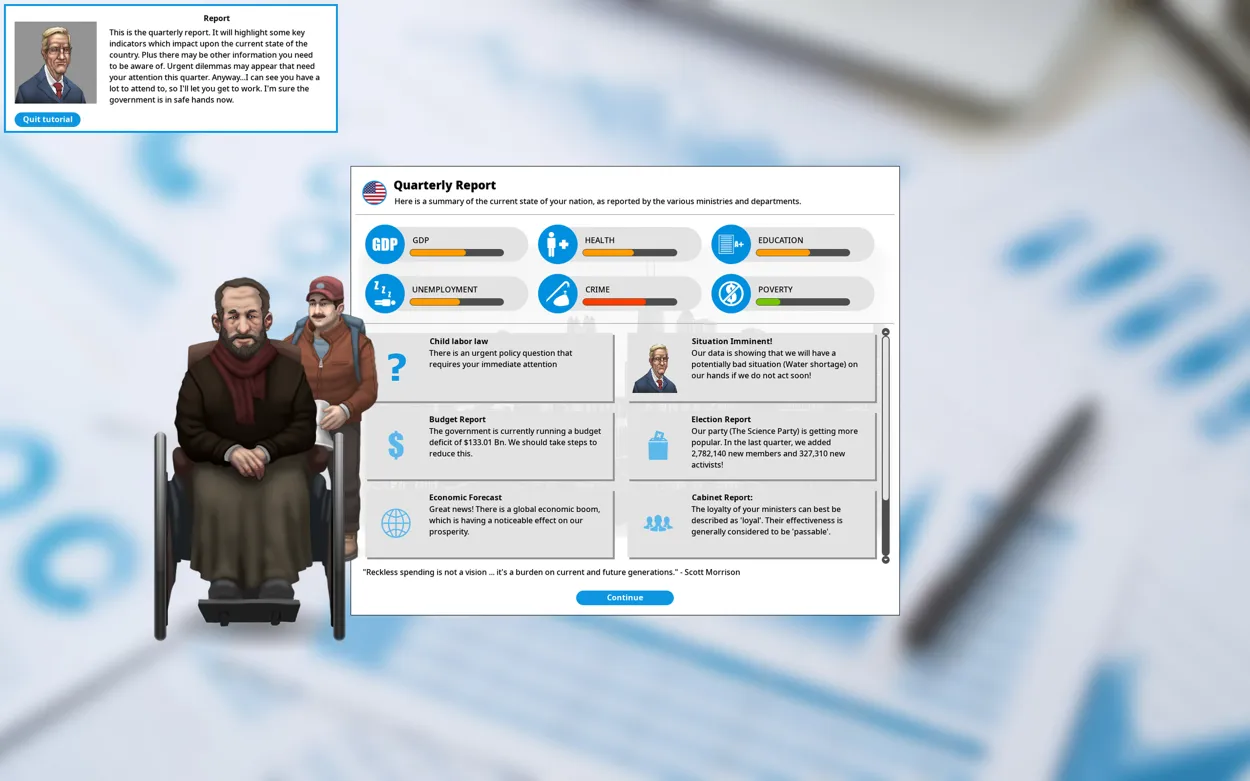 My hands. You’ve left it in my hands, sir, and you and I both know my hands are not safe.
My hands. You’ve left it in my hands, sir, and you and I both know my hands are not safe.
Democracy 4 is a political simulation game. You play as the leader of a democracy, fresh-faced, newly elected, and ready to create a society in your own image. What that image is is entirely up to you the voters you, with the only real risk being that you’re voted out of power each election cycle. Which, I mean, if you just end democracy, solves itself.
Personally, I perpetually tried to ensure I would at least be re-elected in a democratic election, carefully balancing the needs of various groups, especially those who were planning on voting for me. Democracy 4 uses a complex series of interactions and policy decisions to fuel its political landscape. Each policy has multiple trickling implications on political outcomes and voting blocs, and the decisions of which policies to implement must be carefully made.
Or you could - like me - YOLO your way through and see what kind of utopia you can create. Both methods are fun.
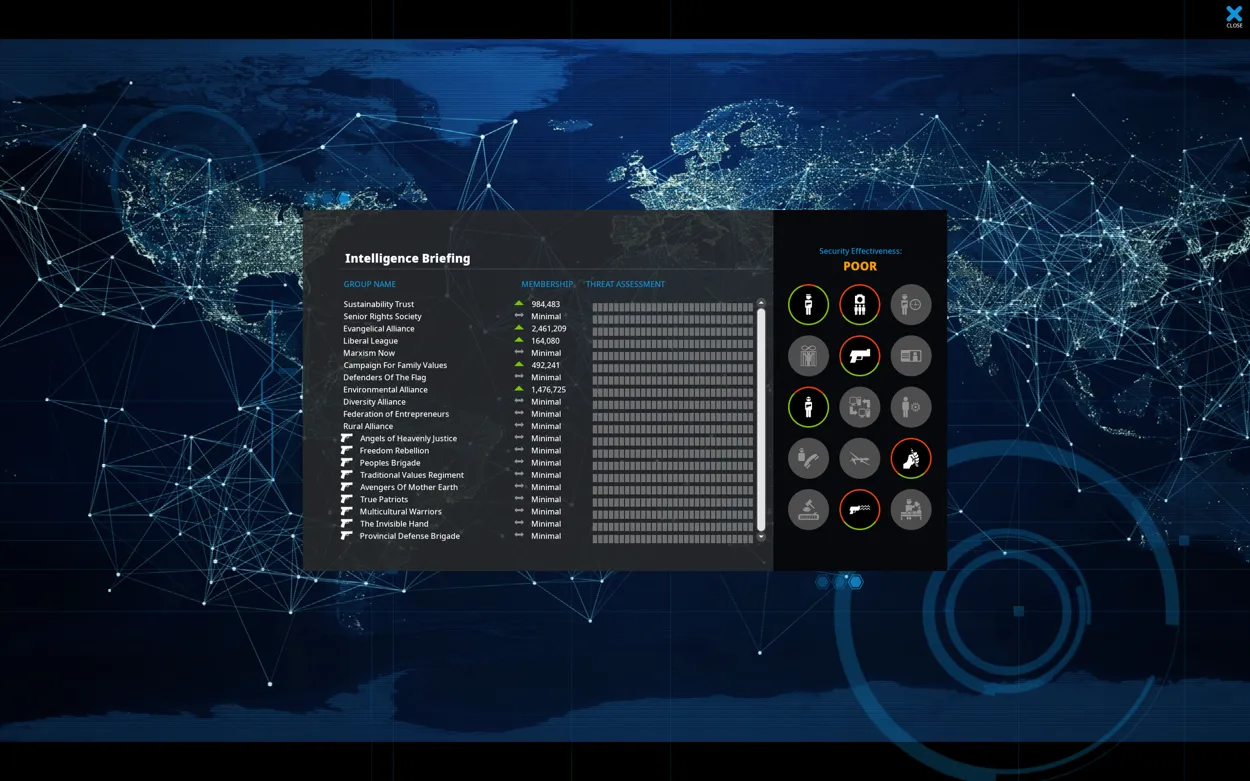 My leader is indeed going to YOLO.
My leader is indeed going to YOLO.
On a strictly simulation level, Democracy 4 does a fairly decent job simulating the intricacies of policy and the implications of particular decisions. While I didn’t always understand how I ended up at the outcome I got or the logic the game took to get there, I did follow why the game linked these decisions and outcomes. Even if the outcome came later, it was still satisfying.
More importantly, though, the game also felt like it took at least some degree of reality into account. While it doesn’t and can’t provide a perfect image of a country by any means, that it modelled each democracy in a different way, with different voter distributions and concerns, felt honest. Equally, though I don’t believe it’s possible to create a game modelling politics without some amount of bias, there is a refreshing degree of transparency and logic in Democracy 4’s simulation. Unlike a game like Citystate , Democracy 4 feels as though it isn’t necessarily propelling the player towards a certain political bent, but rather, leaving the possibilities open and creating a skill question rather than a political stance question. Whether you successfully recreate North Korea is not a question of morality, but rather, of whether you can convince your populace to go along with you.
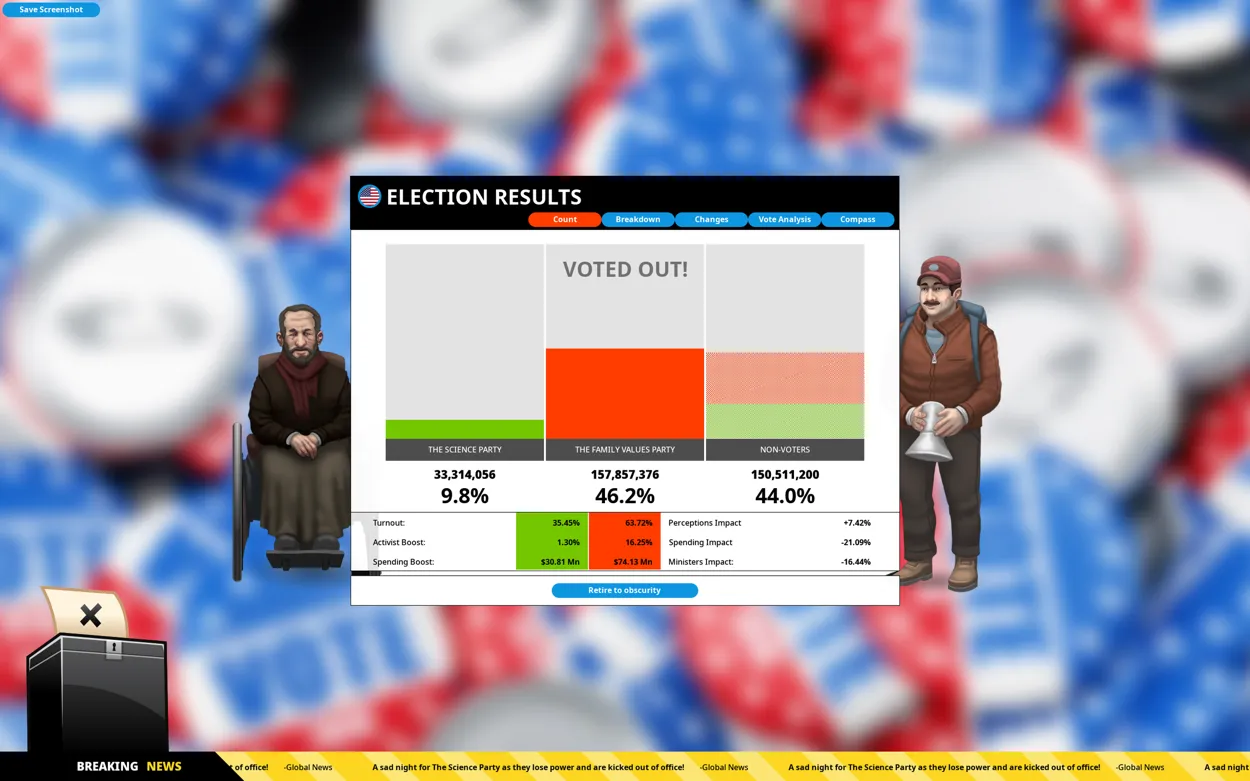 내 슬픔은 끝이 없습니다.
내 슬픔은 끝이 없습니다.
It is precisely this sense of openness and freeform nation-building that I found challenging, however, While the game captures the complexity of political decision making, that also inherently comes with some degree of obscurity. There are a lot of buttons and options in Democracy 4, and there is a steep learning curve for figuring out what they all do and which one will solve the particular crisis you’re in. Indeed, even understanding what crisis you’re in can be a bit of a mystery, with various buttons and blobs growing and shrinking without necessarily showing the impact they’re having on your approval. As a game mechanic, this can be frustrating, with a distinct sense of obscurity in what to do to gain the voters’ trust and confidence. On the other hand, not knowing what crisis to address or what to do about it also feels like it captures something distinct about democracy and what makes it such a carnival. I can focus on long-term issues like climate change and obesity to my heart’s content, knowing they’re good for the populace, but if the populace wants guns handed out to every lady getting an on-demand gay wedding for her aborted faetus, who am I to question them?
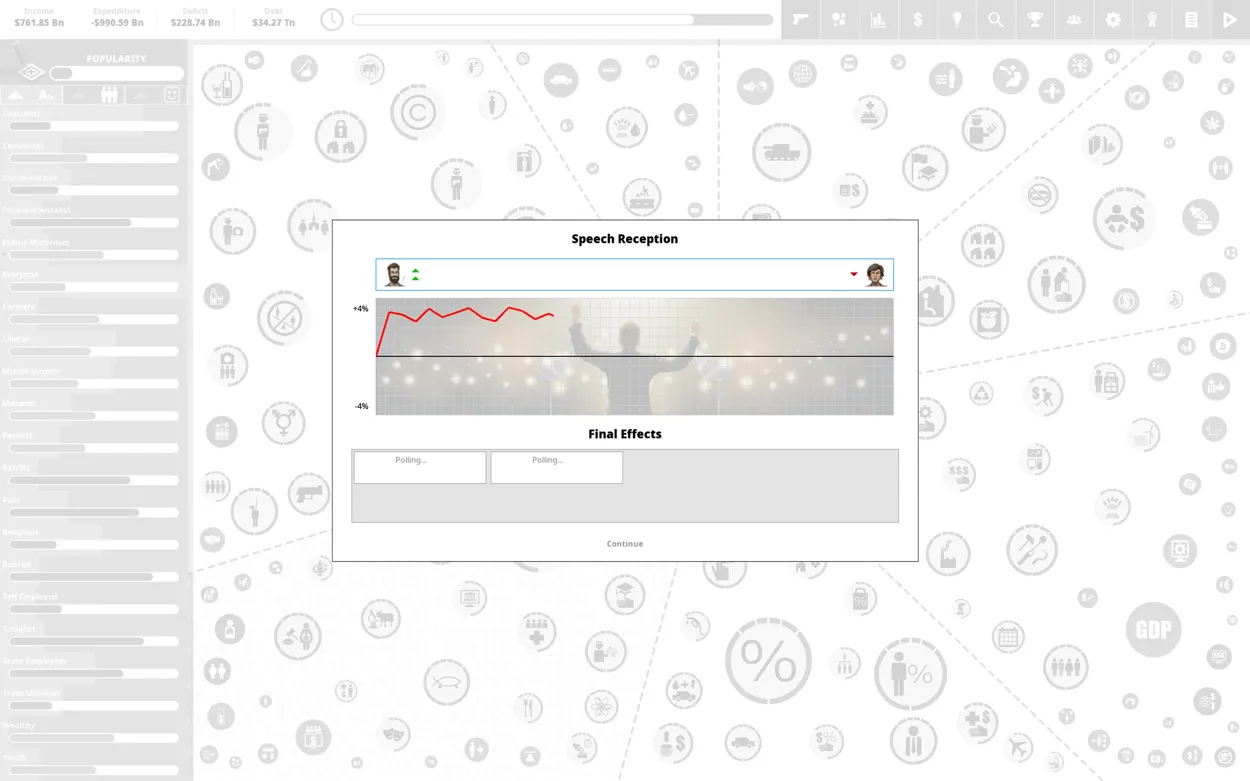 “Abortions for some, miniature American flags for others!”
“Abortions for some, miniature American flags for others!”
All of this would seem to suggest that there is a dynamism to Democracy 4, a constant chaotic space demanding attention and careful management. Much like actual governance, though, this is not the case. Crises will arise that demand attention, sure, but a larger chunk of time is spent quietly moderating policies that may or may not make a difference. The act of governing well is the act of not being seen to meddle, and that exists in spades in Democracy 4. Much of the game was quiet and repetitive. For some, this might be too repetitive, with that need to have something happening driving them to continuously take drastic actions. However, this repetitiveness also feels in line with a good simulation. Governing isn’t always thrilling. It just is.
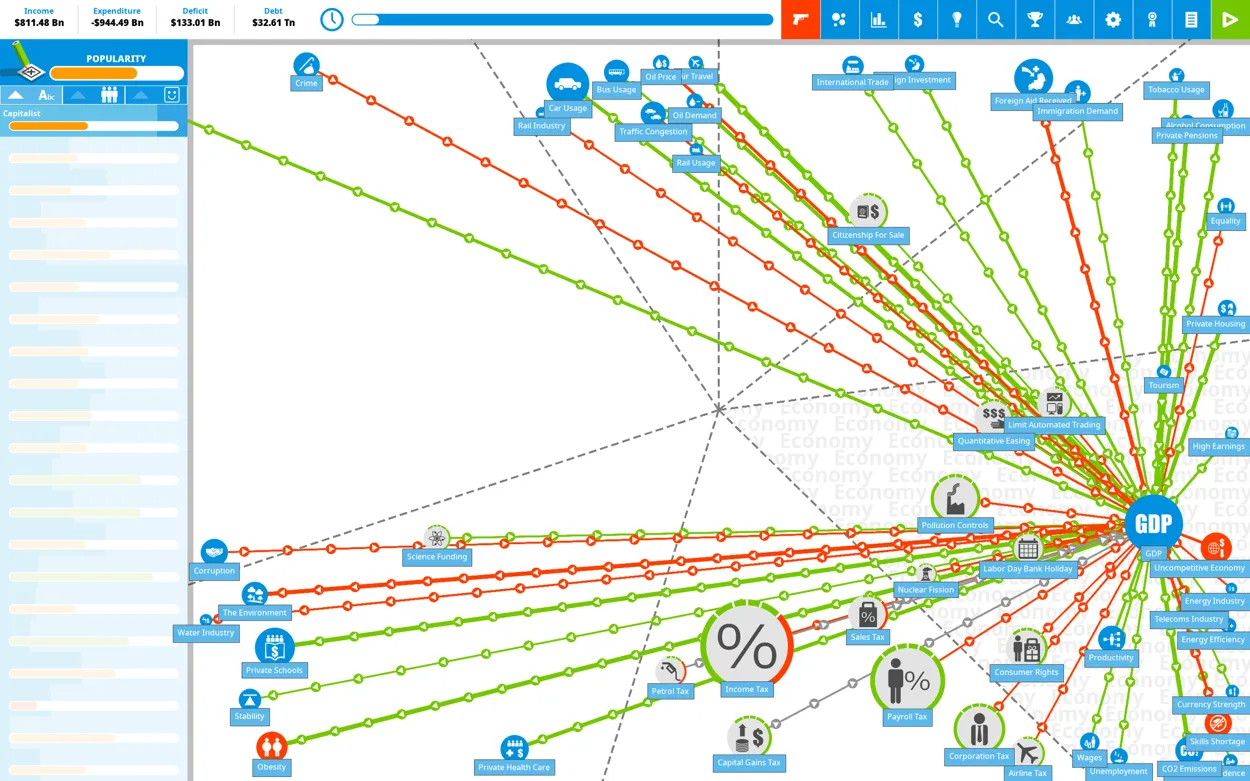 It’s the economy, and I feel stupid.
It’s the economy, and I feel stupid.
Ultimately, what a player gets out of Democracy 4 is very much dependent on what they put into it. Every game of Democracy 4 I load up, I load up with the intention of creating something. I throw my own morality into the game and see what comes back out. Often, it crashes and burns, but at the very least, I get to have a lovely time implementing policies, seeing their outcomes, and having a lovely time imagining what could be if anyone ever let me into a position of power.
Developer: Positech Games
Genre: Simulation
Year: 2022
Country: United Kingdom
Language: English
Play Time: 3-4 Hours/Game
Youtube: https://youtu.be/oH-R3LZxUrg
